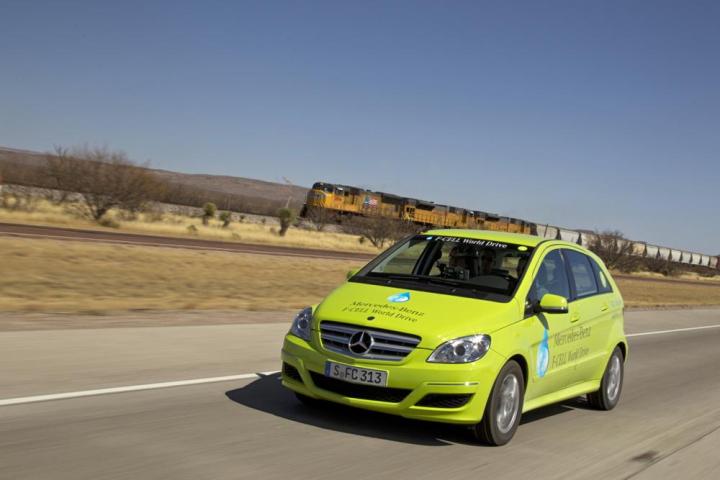
The difference between craziness and brilliance often comes down to timing.
Carmakers hope the time is right for hydrogen fuel-cell vehicles. Hyundai will launch its Tucson Fuel Cell in California this year, Honda and Toyota will put fuel-cell cars in showrooms next year, and now Mercedes-Benz has reportedly entered the fray.
Mercedes head of sales and marketing Ola Kallenius told Australia’s Motoring that the company believes hydrogen will play a key role in the future, and that it’s investigating what it calls the “next level” of the technology.
Like other carmakers, Mercedes has built limited numbers of fuel-cell cars to test the technology, but until now it hasn’t committed to a mass-market model.
That vehicle – likely an SUV – could arrive in the “2017-ish timeframe,” Kallenius said. However, he told Motoring that Mercedes is concerned about the lack of a hydrogen refueling infrastructure.
There are only 10 hydrogen fueling stations in the United States; nine of those are in California. Consequently, carmakers may have to adopt a “build it, and they will come” attitude similar to the launch of the first modern electric cars over the past few years.
However, while there weren’t many charging stations when the first Nissan LEAFs hit showrooms, electric cars can at least be charged from conventional outlets in a pinch. Hydrogen may be the most abundant element in universe, but when it comes to powering a car, it’s hard to come by.
So while Mercedes has experimented with fuel cells, it will likely continue to bide its time until the infrastructure problem is solved.
Still the company seems to think 2017 is the ideal time. After building about 200 B-Class-based F-Cell hatchbacks for the 2010 model year, Mercedes hinted at a production version, but then pushed its launch back to – you guessed it – 2017, saying it wanted to partner with another carmaker to lessen the burden of development costs.
If the production Mercedes fuel-cell car really does arrive in 2017, it will be a bit late to the party, but the cool kids are always fashionably late.
Editors' Recommendations
- Mercedes-Benz wants to know what you expect from a ride in a self-driving car
- Hyundai’s hydrogen fuel cell truck makes hauling freight green and glamorous
- Hydrogen was the fuel of tomorrow, so what happened?
- Toyota uses hydrogen fuel cells to power one of its Japanese factories
- BMW teases hydrogen cars again with fuel cell X5 concept


